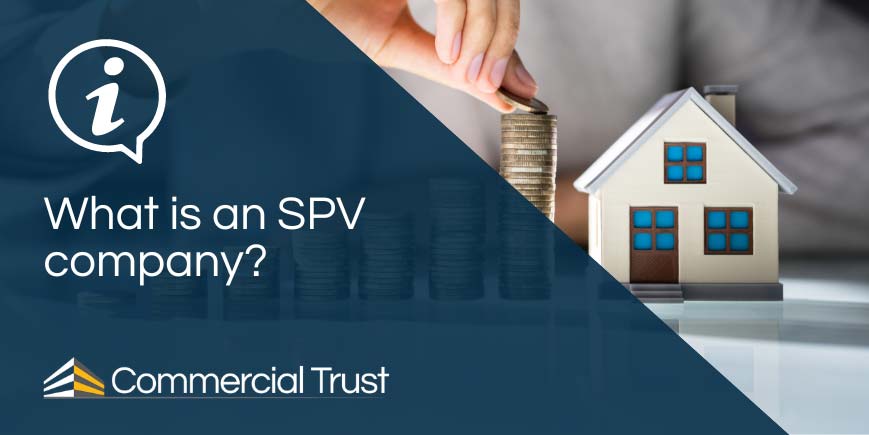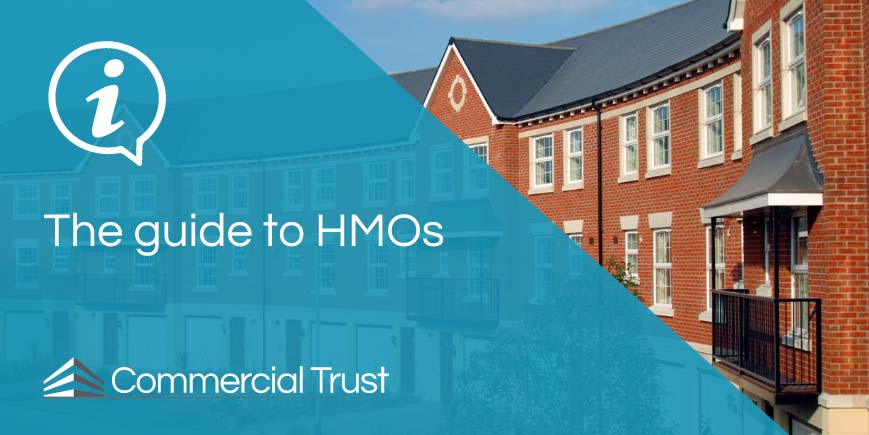This information should not be interpreted as financial, tax or legal advice. Mortgage and loan rates are subject to change.

Categories: guides | commercial mortgage guides
Part of the process of buying commercial property with a commercial mortgage, is to get commercial property insurance.
Lenders require appropriate and adequate insurance cover to be in place, because their own funds are at risk as well as yours.
Commercial property insurance will provide cover against property damage, content damage and theft, allowing landlords and owner-occupiers to protect their investment.
In this guide, we outline the importance of insurance for landlords, discuss what is and is not covered, and the expected costs of insurance for commercial property.
If you are wondering how to buy commercial property, Commercial Trust offers commercial mortgages that will help you to quickly and easily finance a commercial property.
Contents
- Do landlords need commercial property insurance?
- What is covered under commercial property insurance?
- What will not be covered under your commercial property insurance?
- How much would commercial property insurance cost?
- How to get commercial property insurance
- What other commercial insurance does a landlord need?
- Interested in a commercial mortgage? Then get in touch with Commercial Trust
- FAQs
Do landlords need commercial property insurance?
Insurance for commercial property is essential for landlords. The insurance protects landlords against financial losses that can arise from events that cause damage or loss to the property and its contents. Without insurance, landlords would have to bear the expenses to replace or repair damaged assets.
Purchasing a commercial property represents a significant investment. For landlords and owner-occupiers, their commercial property is either a significant income source, or a property they run their business from and their primary source of income.
With insurance, any interruption in that income through damage or other event is covered, to avoid potentially significant financial loss.
What is covered under commercial property insurance?
As with house insurance, there are two types of commercial property insurance 1) buildings insurance and 2) contents insurance.
Commercial buildings insurance
Commercial buildings insurance cover the expenses associated with repairing or rebuilding the physical structure of your property.
This includes protection against damages caused by events such as:
- Fires;
- Storms;
- Vandalism;
- Theft;
- Fallen trees;
- Burst pipes;
- Subsidence.
Commercial contents insurance
Even if you are not an owner-occupier there may be a case for taking out contents cover, if any fixtures and fittings are yours. If you are an owner-occupier then contents insurance is essential.
Commercial contents insurance, as the name suggests, covers contents in the commercial property in case they are damaged or stolen. Contents that may be covered include items such as furniture, equipment, or appliances.
You can extend cover so that goods in transit is covered.
What won't be covered under your commercial insurance?
Insurance policies for commercial properties typically exclude certain types of events or damages from coverage.
We have listed a few examples of what typically is not covered by commercial property landlord insurance:
- Wear and tear: Wear and tear from the natural ageing of a property is not covered by insurance. The landlord will be responsible for the costs associated with routine maintenance.
- Natural disasters: Natural disasters, specifically earthquakes and floods, usually require separate policies to be added to the coverage.
- Tenant's personal property: Where you are letting out a property, rather than running your own business from it, tenants must obtain their own contents insurance to protect their belongings, such as their commercial machinery, stock, or office furniture.
- Intentional acts of damage: Intentional damage to the physical structure of the property or property contents caused by the landlord or tenants are not covered.
- Nuclear hazards or war: Nuclear hazards or war-related events are considered extraordinary events and are generally excluded from standard insurance policies.
How much would commercial property insurance cost?
Numerous factors impact the cost of insurance for commercial property.
For example, if your property is in an area with a high crime rate, you can expect a higher insurance policy cost. The age of your commercial property will also impact the costs, as older buildings may result in more expensive issues to repair. If you have selected a policy with lots of additional cover or high value cover, you can also expect a higher insurance policy cost.
If you are letting the property, the type of business your tenants conduct will also determine your insurance policy costs. If your property is leased to tenants in high-risk industries, such as manufacturing businesses that use hazardous materials, you may require higher coverage to protect against the potential for accidents or damage.
A commercial property insurance broker can help you find an insurance policy that suits your budget. As commercial property insurance professionals, they can source the best insurance policy for your specific commercial property needs.
How to get commercial property insurance
You can choose to work with a commercial property insurance broker or complete the application process independently to insure your commercial property.
Obtaining insurance with a broker involves researching and selecting a reputable professional, consulting with them about your needs, and reviewing the policy options they present. The broker will then guide you through the application process.
To get insurance without a broker, you will need to determine your coverage needs and gather commercial property landlord insurance quotes. After comparing and reviewing the quotes, you can then complete the application with your selected provider to finalise the policy.
Whether you use an insurance broker or complete the process yourself will depend on your preferences and experience with dealing with insurance providers. By partnering with an insurance broker, you can save time, effort, and potentially money, while ensuring that you secure the most suitable protection for your commercial property investment. Completing the process yourself may prevent you having to pay any broker fees.
What other insurances does a commercial landlord need?
As a landlord of a commercial property, you can choose various insurance policies to ensure you are fully protected against financial liabilities. In addition to commercial property insurance, you can have a property owner’s liability insurance policy, an umbrella insurance policy to protect against large claims or lawsuits, and accidental damage cover.
Interested in a commercial mortgage? Then get in touch with Commercial Trust
Whilst we cannot help you with insurance, if you are buying or remortgaging commercial property, you can secure a great deal with our help. Commercial Trust has access to an extensive range of UK lenders.
Our commercial mortgage team is comprised of experienced mortgage advisors and mortgage account managers. We will support you through every step of the process.
Quickly calculate your monthly mortgage repayments or chat with an expert mortgage advisor to discuss obtaining a commercial mortgage.
FAQs
Commercial property insurance is not a legal requirement for landlords. However, insuring your commercial property is essential to protect against financial losses, maintain the property's value as a significant investment and income source, and meet commercial mortgage lender requirements.
You can get protection in the form of loss of rent or unoccupied property insurance. These policies provide coverage for the loss of income resulting from vacancies or periods when your property is unoccupied.
While not legally required, it is recommended to have insurance even if you don't have a mortgage. This coverage protects you from financial losses due to potential damage.
The landlord is responsible for commercial building insurance, which covers the structure and landlord-owned content of the property. Tenants will have to insure the contents of the premises which are theirs.





